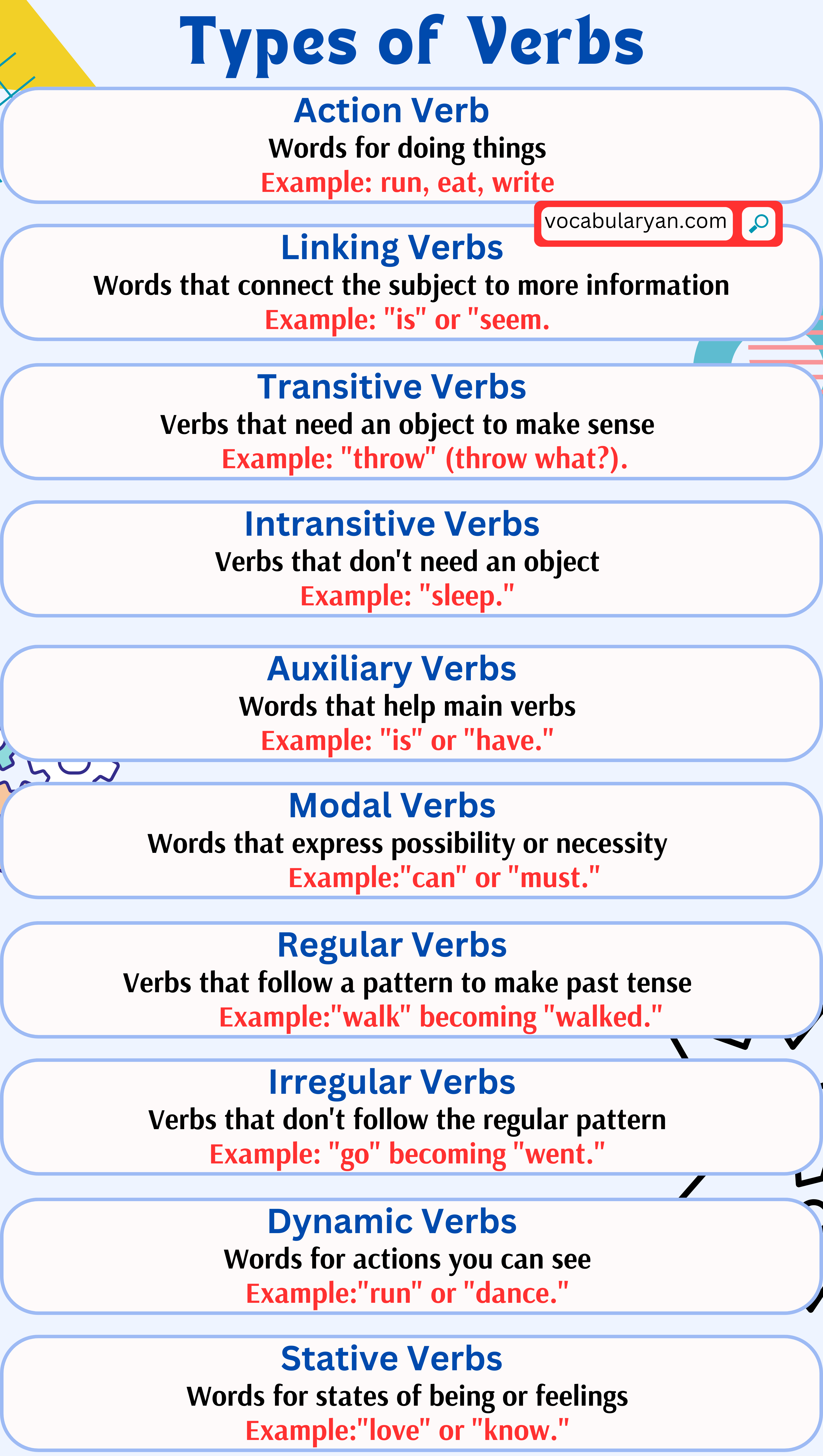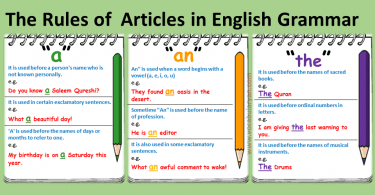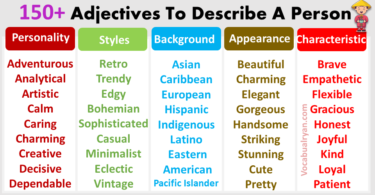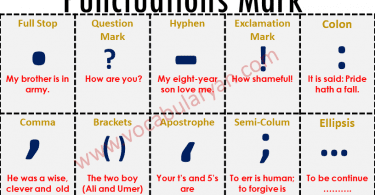Learning the Verbs & its Types is key to mastering English grammar and sentence structure. Verbs express actions, states, or occurrences and include categories like action verbs (run, write), linking verbs (be, seem), and auxiliary verbs (have, do). Additionally, verbs can be transitive (require an object) or intransitive (do not require an object). Understanding these verb types helps you form clear, accurate sentences and communicate effectively in speaking and writing. Whether you’re a student or language learner, mastering verb types strengthens your overall English skills.
What is a verb?
A verb is a word that tells us what someone or something is doing. It’s an action word. For example, in the sentence “She runs fast,” the word “runs” is the verb because it tells us what she is doing (running). Verbs are like the engines of a sentence—they drive the action!
Types of verbs
Verbs are words that show actions, states, or occurrences. There are several types, including action verbs (run, eat), which describe physical or mental actions; linking verbs (be, seem), which connect the subject to more information; helping (auxiliary) verbs (is, have), which assist the main verb; and modal verbs (can, must), which express possibility or necessity. Each type helps build clear and meaningful sentences.
Action Verb
Action verbs express physical or mental actions performed by the subject. They indicate what someone or something is doing.
- Physical Action: She ran to catch the bus.
- Mental Action: He thinks about his future often.
List Of Action Verbs
- Run
- Jump
- Walk
- Dance
- Swim
- Eat
- Drink
- Sleep
- Talk
- Laugh
- Cry
- Sing
- Play
- Climb
- Kick
- Punch
- Push
- Pull
- Throw
- Catch
Linking Verb:
Linking verbs connect the subject of a sentence to a word or phrase that describes or renames the subject. They do not show action but rather connect or equate the subject to the predicate.
- She is a teacher. (The linking verb “is” connects the subject “she” to the predicate nominative “teacher.”)
- The flowers smell lovely. (The linking verb “smell” connects the subject “flowers” to the adjective “lovely.”)
List of Linking Verbs:
- Am
- Is
- Are
- Was
- Were
- Be
- Being
- Been
- Seem
- Become
Helping Verb (Auxiliary Verb):
Helping verbs, or auxiliary verbs, assist the main verb in expressing various grammatical functions such as tense, mood, voice, and aspect.
- She has finished her homework. (The helping verb “has” indicates the perfect aspect.)
- He will study tonight. (The helping verb “will” indicates future tense.)
List of Helping Verbs:
- Am
- Is
- Are
- Was
- Were
- Be
- Been
- Have
- Has
- Had
- Do
- Does
- Did
- Shall
- Will
- Should
- Would
- May
- Might
- Must
- Can
- Could
Modal Verb:
Modal verbs express possibility, necessity, permission, ability, or obligation. They are used before the base form of the main verb.
- She can speak French fluently. (Expresses ability)
- You should apologize. (Expresses obligation)
List of Modal Verbs:
- Can
- Could
- May
- Might
- Must
- Shall
- Should
- Will
- Would
Regular Verb:
Regular verbs follow a standard conjugation pattern to form their past tense and past participle by adding “-ed” to the base form.
- Walk (base) → Walked (past tense) → Walked (past participle)
- Play (base) → Played (past tense) → Played (past participle)
List of Regular Verbs in their base (infinitive) form:
- Walk
- Talk
- Cook
- Play
- Love
- Clean
- Jump
- Laugh
- Dance
- Live
- Paint
- Call
- Open
- Close
- Listen
- Learn
- Watch
- Travel
- Work
- Help
Irregular Verb:
Irregular verbs do not follow the standard conjugation pattern. Their past tense and past participle forms are unique and must be memorized.
- Go (base) → Went (past tense) → Gone (past participle)
- Eat (base) → Ate (past tense) → Eaten (past participle)
List of Irregular Verbs:
- Go (went, gone)
- Be (am/is/are, was/were, been)
- Have (had)
- Do (did, done)
- Say (said)
- Come (came, come)
- Take (took, taken)
- Make (made)
- See (saw, seen)
- Get (got, gotten)
- Give (gave, given)
- Find (found)
- Know (knew, known)
- Think (thought)
- Take (took, taken)
- Speak (spoke, spoken)
- Drive (drove, driven)
- Eat (ate, eaten)
- Drink (drank, drunk)
- Break (broke, broken)
Transitive Verb:
Transitive verbs require a direct object to complete their meaning. They act upon or affect something or someone.
- She bought a new car. (The verb “bought” acts upon the direct object “car.”)
- He ate the delicious cake. (The verb “ate” acts upon the direct object “cake.”)
List of Transitive Verbs:
- Eat
- Cook
- Write
- Read
- Kick
- Open
- Close
- Hit
- Watch
- Drive
- Paint
- Build
- Carry
- Catch
- Throw
- Love
- Make
- Buy
- Sell
- Teach
Intransitive Verb:
Intransitive verbs do not require a direct object to complete their meaning. They express an action that does not pass from the subject to an object.
- The birds fly in the sky.
- He slept peacefully.
List of Intransitive Verbs:
- Run
- Jump
- Sleep
- Laugh
- Cry
- Arrive
- Depart
- Exist
- Walk
- Sit
- Stand
- Talk
- Listen
- Sing
- Dance
- Smile
- Think
- Wait
- Appear
- Disappear
Dynamic Verb:
Dynamic verbs describe actions or processes that occur over time and can be observed or experienced.
- She runs every morning.
- They laughed at the joke.
List of Dynamic Verbs:
- Run
- Jump
- Walk
- Dance
- Sing
- Swim
- Talk
- Write
- Read
- Eat
- Cook
- Play
- Drive
- Paint
- Build
- Kick
- Climb
- Ride
- Work
- Think
Stative Verb:
Stative verbs express a state, condition, or state of being rather than an action. They describe thoughts, emotions, possessions, or senses.
- She believes in ghosts.
- He owns a big house.
List of Stative Verbs:
- Be
- Have (when expressing possession)
- Like
- Love
- Hate
- Prefer
- Believe
- Understand
- Know
- Remember
- Forget
- Want
- Need
- Deserve
- Belong
- Own
- Seem
- Appear
- Feel (when expressing emotions)
- Smell (when describing perception)
Phrasal verbs
Phrasal verbs consist of a main verb combined with one or more particles (prepositions or adverbs). They often have a meaning different from the individual parts.
- He looks up new words in the dictionary.
- They ran into an old friend at the mall.
List of Some Common Phrasal Verbs:
- Break down
- Carry on
- Come across
- Look after
- Put off
- Take off
- Turn on
- Go on
- Look for
- Give up
- Set up
- Bring up
- Get up
- Makeup
- Put up with
- Take after
- Run out of
- Bring back
- Call off
- Turn off

You May Also Like




Leave a Comment